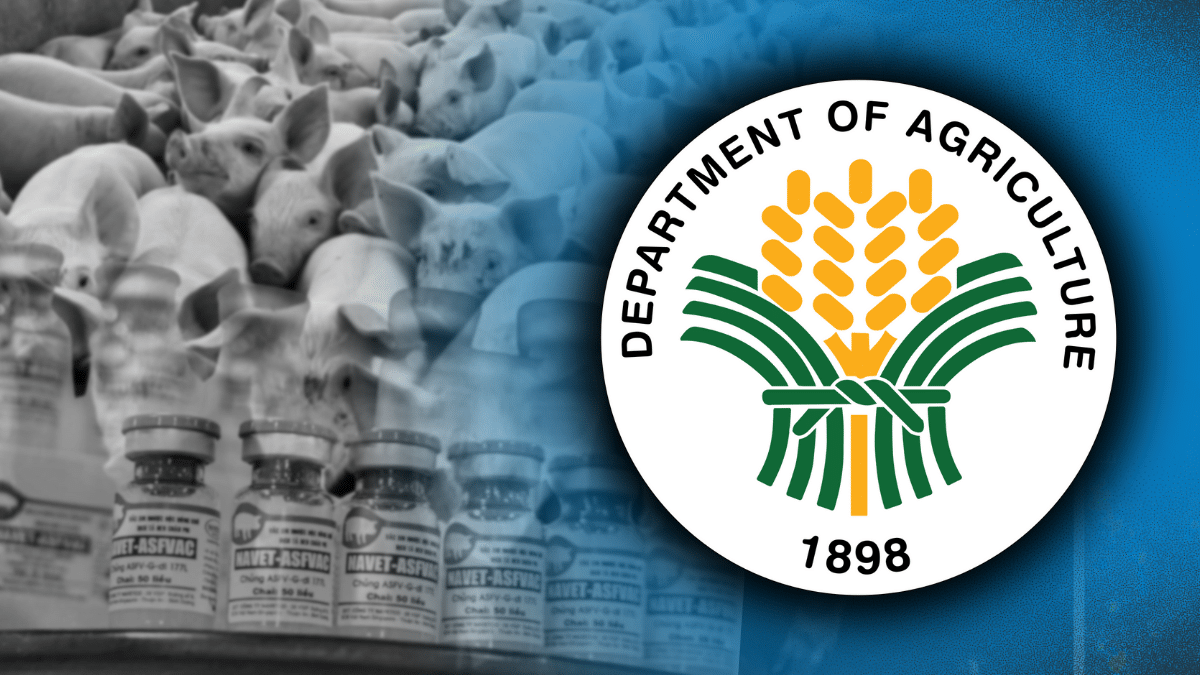
PHOTO FROM AFP/INQUIRER FILES
The Department of Agriculture (DA) will begin inoculating pigs in areas free from African swine fever (ASF) to address low participation in the vaccination drive.
Per Administrative Circular No. 13, the DA said the vaccination program would now include hogs in barangays with no active ASF cases for at least 40 days and in areas previously tagged as red or pink zones but currently with no active ASF cases.
Red zones refer to areas infected with ASF, while pink zones are areas with no ASF but are adjacent to an infected zone.
READ: ASF vaccination expands to bigger piggeries
Vaccines will only be administered to weanling or grower pigs that are at least four weeks of age and must be healthy or have tested negative for ASF.
“There is no minimum number of pigs required for vaccination and pigs do not need to be in the same age group for vaccination,” it said.
Vaccinated pigs will be allowed to be transported for slaughter purposes only if they appear healthy and test negative for ASF viral antigen during a 30-day post-vaccination monitoring period.
Adhering to regulations
A test will be conducted within seven days prior to slaughter if the monitoring period exceeds 30 days.
Clearing vaccinated pigs for transportation must adhere to current regulations, including obtaining a certification from local authorities that ASF is not present in the area where the pigs are coming from.
READ: DA: Hog vaccination so far yielding positive results
Pigs that test positive for ASF viral antigen and exhibit clinical signs consistent with ASF must be depopulated.
Pigs that test positive but do not show any clinical signs will undergo additional monitoring and testing. Shipment, however, will suspended and the pigs will be subject to a seven-day observation period.
If pigs test negative, they can be delivered for slaughter. However, pigs that remain positive after additional tests will be depopulated based on existing guidelines.
Slowdown
In August, the DA commenced the government-controlled vaccination of infected hogs in Lobo town in Batangas, ground zero of the ASF resurgence.
The agency then expanded its coverage to include commercial farms and swine herds to fast-track the fight against ASF.
Despite these developments, the DA still observed a slowdown in the vaccination program due to various factors.
“There is a need to address low participation rate and gaps on the existing implementation protocol particularly on the utilization, administration and monitoring of vaccinated pigs,” the DA said.
“To effectively increase the participation of farms in the ASF vaccination, achieve the desired coverage and facilitate the assessment of the vaccine’s safety and efficacy, there is an urgent need to fast-track the implementation of the ASF vaccination program,” it added.
Agriculture Secretary Francisco Tiu Laurel Jr. said last week the DA had already distributed the first 10,000 doses of AVAC live vaccines from Vietnam and would use next 150,000 doses, which have yet to arrive in the country.
As of Nov. 8, active ASF cases have been recorded in six regions and 20 provinces, according to the Bureau of Animal Industry. ASF hit a total of 76 provinces since the Philippines recorded the first outbreak in 2019. INQ